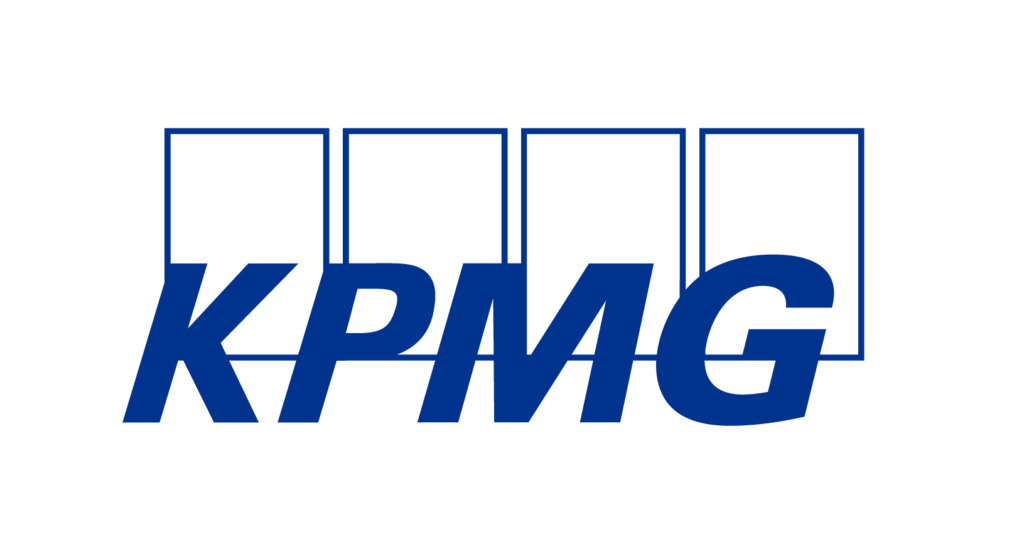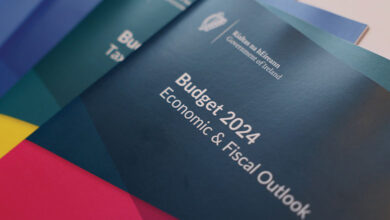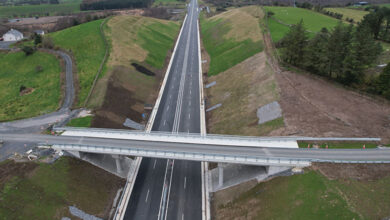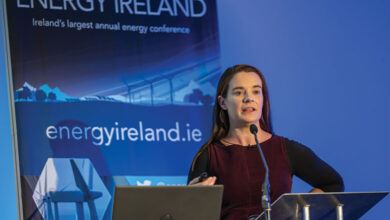KPMG: Emerging trends in infrastructure in 2023

Sustainability, inflation, supply chain disruption, and digital transformation are some of the key global emerging trends in infrastructure in 2023, writes Paul O’Neill, Managing Director, Corporate Finance, KPMG.
The importance of sustainability – moving from talk to action
This year, expect to see sustainability become more formalised as an essential prerequisite for all new infrastructure development. Developers, owners, and investors are starting to think not just about financial budgets, but also about carbon allocation ones. We are seeing this more and more across our public and private clients as they look to respond to environmental, social and governance (ESG) requirements to stay relevant and drive long-term value. Our key message to clients is to understand and challenge your overall financial and sustainability ambition; identify material issues, risks, and opportunities; and develop a sustainable growth strategy encompassing ESG criteria ensuring resilience and delivering long-term economic growth.
Governments, including our own most recently through the Climate Action Plan 2023 (CAP23), have big ambitions on climate change. However, they also understand that the cost of the required structural changes will likely be enormous; some estimates suggest upwards of 7 per cent of global GDP between now and 2050. This, at a time of massive pressure on governments’ pocketbooks, rising inflation, and justifiable debates on who holds the costs and reaps the benefits of climate change. From an Irish context, CAP23 reaffirms the Government’s commitment to public investment of €165 billion from 2021 to 2030. If delivered, this will bring public investment to 5 per cent of GNI, well above the EU average of 3 per cent of GDP. Given this, and the need to ensure public investment is pursued within a sustainable finance setting, consideration should be given to how sustainability costs and benefits are properly incorporated in the Public Spending Code to ensure due weight is given to ESG considerations alongside financial assessments.
Inflation, pricing, and supply chain disruptions elevates the risk
The market volatility and financial disruption of the past 12 to 18 months has certainly not been easy and continues to represent a challenge for all stakeholders. What is worrying infrastructure owners and investors is that, more often than not, the price risk in today’s contracts flow down to the developers and contractors. For years, costs had remained fairly stable, and price and supply chain risks were generally considered a symptom of poor cost management. It only made sense that those with the greatest control over cost discipline should also hold the cost risk.
Over the coming year, we expect to see contractors, developers and investors start to rethink who should own the cost and price risk on their assets and investments. In an Irish context, we are seeing this lead to project delays and uncertainty as contractors push back on committing to expensive tenders for public capital projects. Equally, market uncertainty is placing a significant strain on Exchequer capital budgets with the level of risk and contingency now included to manage pricing uncertainty driving affordability concerns.
“Over the coming year, we expect to see contractors, developers and investors start to rethink who should actually own the cost and price risk on their assets and investments.”
Unfortunately, and not surprisingly, the pace of rollout of the National Development Plan has suffered as a result. However, green shoots are emerging. The rate of increase in construction inflation is expected to stabilise if not decline in 2023 with a further decline predicted for 2024. We are also seeing a proactive approach taken by public authorities, through inflation co-operation frameworks and other mechanisms, in helping to address inflation and pricing risk and maintain sufficient market capacity. What may also emerge is a style of contracting that more closely resembles ‘open book’ than in the past, while still maintaining a level of price discipline between the contractor and the owner. The challenge will likely be to maintain price discipline while allowing for prudent risk sharing. Strong trust and cooperation between the public and private sector, developers and operators, and buyers and suppliers will be key to meet the Government’s public investment commitments.
Getting the most from digital
This year, we expect to see significant pressure on contractors and developers to up their digital capabilities. There is a need to drive further productivity into the Irish construction sector, which we previously highlighted in our Economic analysis of productivity in the Irish construction sector report commissioned by the Department of Public Expenditure, NDP Delivery and Reform.
Digital transformation and innovation are key to driving productivity with modern methods of construction (MMC) being one such example. MMC effectively describes an approach to constructing buildings more quickly, reliably, and sustainably by methods such as off-site manufacturing. If the industry is to meet the challenging targets outlined in government’s public investment plans, particularly in housing, MMC could be an attractive option with digital transformation at the forefront. The adoption of MMC may also be an effective way for developers to meet the sustainability metrics that funders and investors are increasingly seeking.
However, progress has been slower than hoped. Denmark, the Netherlands, and the UK have embraced digital technologies and innovation and appear better placed to meet productivity challenges than countries like Ireland. So why are we different? The market volatility of the past 12 to 18 months has not helped but this was not unique to Ireland. More needs to be done to support, value, and reward innovation in contracts using MMC or other techniques driven by the adoption of technologies designed to increase levels of productivity and maximise efficiencies.
The 11th edition of KPMG’s Emerging Trends in Infrastructure is now live; the 2023 report explores 10 challenges and opportunities facing infrastructure leaders. Read in full at:
https://bit.ly/3H6wDXl
Paul O’Neill
Managing Director,
Corporate Finance, KPMG Ireland
E: paul.oneill@kpmg.ie
W: www.kpmg.ie






